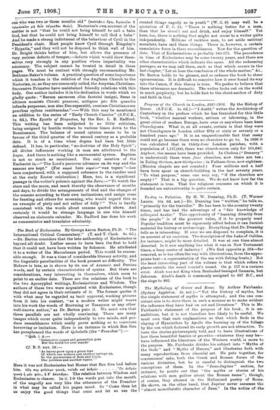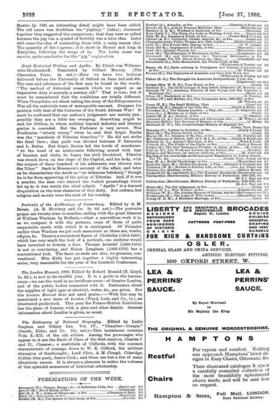The Mythology of Greece and Rome. By Arthur Fairbanks. (Sydney
Appleton. 6s. net.)—" Not the history of myths, but the simple statement of myths is attempted ; and the one con- sistent aim is to state them in such a manner as to make evident the influence they have had on art and literature." This is Mr. Fairbanks's statement of the purpose of his book ; it is un- ambitious, but it is not therefore less likely to be useful. We must own that such explanations as that which finds in the slaying of Hyacinthus by Apollo the burning up of the foliage by the sun which fostered its early growth are not attractive. To have the stories picturesquely told, and to have illustrations of how these beautiful fancies or growths—whatever they may be- have influenced the literature of the Western world, is more to the purpose. Mr. Fairbanks divides his subject into "Myth. of the Gods" and "Myths of Heroes," and illustrates both with many reproductions from classiCal art. He puts together, for convenience' sake, both the Greek and Roman forms of the various divinities, but he is careful to distinguish the two conceptions of them. In the " Zens-Jupiter " section, for instance, he points out that "the myths or stories of his relations with men gather about the Roman name"; though, of course, they abound in the Hellenised poetry of Rome. He shows, on the other hand, that Jupiter never assumes the "almost monotheistic character of Zeus." In the notice of ,the Hyades (p. 1635 an interesting detail might have been added. The old name was doubtless the "piglings " (l'aiSes) ; clustered together they suggested the comparison ; that they were so called because the pig was a symbol of fertility was a later idea. Later still came the idea of connecting them with a rainy season (flw). The quantity of the agrees ; it is short in Homer and long in Euripides, following the Usage of 114,. The Latin name was suculae, quite conclusive for the "pig" explanation.























































 Previous page
Previous page